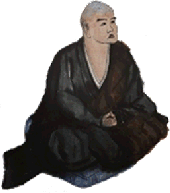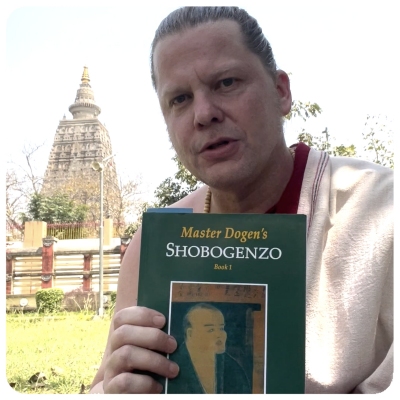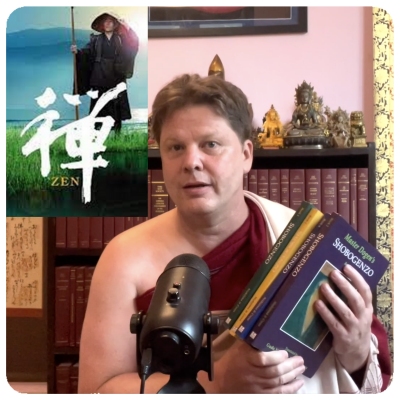     
|

Zen Buddhism
According to legend, Chan Buddhism has its origin in a teaching of Lord Buddha which only Mahākāśyapa understood, when Lord Buddha held up a flower but didn’t say anything. It was passed down over the centuries until eventually Bodhidharma brought it to China from India.
More likely, though, Chan Buddhism first developed in China around the 6th century. It was a synthesis of Mahayana Buddhism and Taoism. Chan means “meditation.” Specifically, it is the Chinese word for Dhyana, the Sanskrit word for which the English word “meditation” is used.
In the 13th century, Master Dogen traveled from Japan to China and stayed in a Chan Buddhist temple for several years. He returned to Japan and began teaching it there where it flourished, but came to be pronounced “Zen” in Japan.
After reading Tipitaka, the early Mahayana Sutras, the commentaries of the Theravadin scholar-monks, the later Mahayana Sutras, and the Vajrayana teachings of Tibet and Japan, Edward will then recite many of the teachings of Chan/Zen Buddhism.
Now and then, though, as it is a subject of much interest, Edward does dedicate an episode here and there to the teachings of Zen. In particular, writings and transcribed lectures of Master Dogen, which you can find here:
 Heart Sutra commentaries |
 Śūraṅgama Sūtra Volume 8 |
 禅 Zen (2009) - Reaction & Review |
     
|